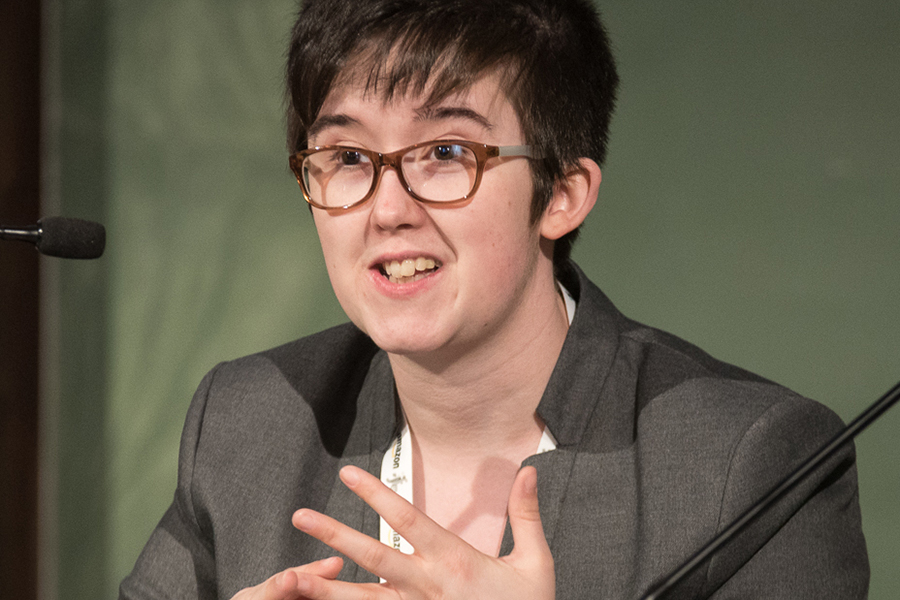Internationally known independent journalist and LGBTQ-activist Lyra McKee, 29, was shot to death on April 19 in Northern Ireland. The Belfast lesbian was reportedly covering a riot in Londonderry when she was murdered in what Irish officials are calling a “terrorist act.”
The riots were linked to the anniversary of the Easter Rebellion that led to Irish independence from Britain.
On April 23, the New IRA released a statement acknowledging responsibility for McKee’s killing. “In the course of attacking the enemy, Lyra McKee was tragically killed while standing beside enemy forces,” the statement said.
McKee had been standing near police officers who were attempting to control the rioting. “The IRA offer our full and sincere apologies to the partner, family and friends of Lyra McKee for her death,” the statement said.
McKee was well known throughout Northern Ireland and frequently appeared on newscasts in Belfast. Her work had been published throughout the U.K. and in the U.S., appearing in the Guardian, among other U.S. publications.
She was on Forbes’ 30-under-30 list of international activist journalists and won the prestigious Sky News Young Journalist Award at only 16. By 2014 McKee had risen to international prominence after she wrote an essay, “Letter to my 14-year-old self” about growing up as a lesbian in Belfast. At her death, activist writer Paraic O’Donnell told the Irish Times, “Belfast isn’t the easiest place in the world to grow up gay — but Lyra found a way to belong here, a way to tell her story. She was our people.”
McKee’s essay on being gay was made into a short film and landed her a two-book deal with international publisher Faber & Faber.
Violence has flared in Northern Ireland since Brexit, and activists have increasingly become targets. McKee’s celebrity in Northern Ireland as a lesbian journalist and activist had already made her the subject of reprisals, according to officials. McKee had long been subjected to online abuse on social media, which she talked about in panel discussions and interviews.
Holy Week is a contentious period in Northern Ireland. In 1998, the Good Friday Agreement was signed, ending three decades of sectarian violence known as The Troubles.
McKee had written extensively about the political strife in Northern Ireland and her book, The Lost Boys, was scheduled for 2020 release. Laura Hassan, editorial director for McKee’s publisher, Faber & Faber, said, “As a writer Lyra was drawn to subjects usually met with silence — she wrote about growing up gay in Northern Ireland, the epidemic of suicide among her generation in Belfast, and, in her forthcoming book, she was investigating the unsolved disappearances of children during The Troubles.”
Her literary agent, Will Francis, said, “We’ve lost a tremendous talent, and today I’m remembering Lyra, and thinking of her friends, her partner and her family.”
Irish writer Sinéad Gleeson said of McKee, “Her death is utterly senseless. A shocking waste. To wake up to the news of such violence on Good Friday of all days — no political or religious symbolism needs to be invoked, we know what this means. Lyra was a blazing comet — fearless and full of integrity.”
Sara Canning, McKee’s longtime partner, spoke on Friday at one of several vigils held for McKee over the Easter weekend. “This cannot stand,” Canning said, crying as she spoke. “Lyra’s death must not be in vain because her life was a shining light in everyone else’s life, and her legacy will live on in the light that she’s left behind.”
Memorials to McKee have sprung up throughout Northern Ireland and the U.K. and her death has been reported internationally.
